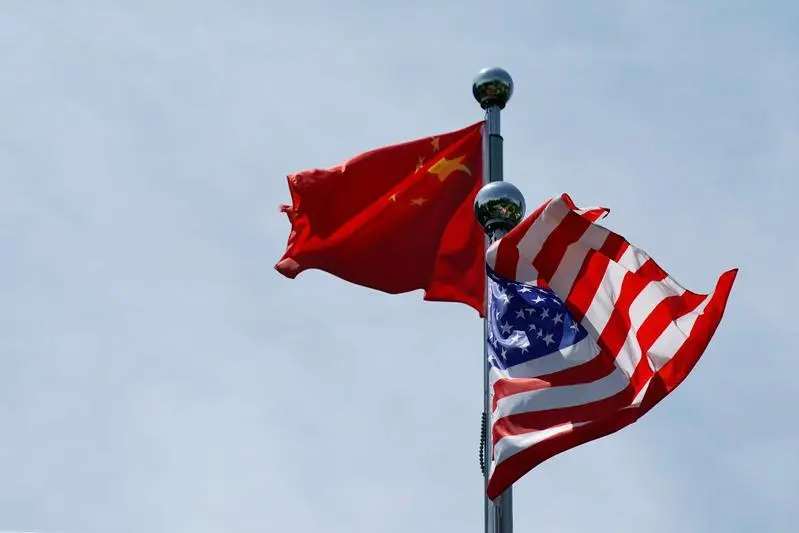PHOTO
NEW YORK - The U.S.-China trade war is escalating, not just in rhetoric about the coronavirus but also in the world of high technology. Further restrictions on China’s Huawei Technologies by the administration of President Donald Trump heighten trade tensions between Washington and Beijing, as does the decision of Taiwan's TSMC to build a $12 billion chip plant in Arizona. Multinationals like Qualcomm and Apple are now vulnerable, too.
The U.S. Commerce Department on Friday said foreign companies that use American chipmaking equipment will need a license before supplying chips to Huawei or its affiliates. That came just hours after TSMC, the world’s dominant chip manufacturer for other firms, said it would locate a relatively small plant in the United States after discussions with the government. It’s all consistent with Trump's complaints about Chinese trade tactics and his aversion to supply chains that stretch U.S. companies' production lines around the world.
Foreign firms don’t want to have sales to Huawei crimped any more than their U.S. rivals do. Qualcomm got nearly half its revenue from China last year, and 16% of Apple's sales came from the Middle Kingdom last quarter. That's an indication of the kind of dent a widened and extended tech trade standoff could inflict on multinational businesses. Following the Commerce Department's latest move, China could put these and other U.S. companies on an "unreliable entity list" which could mean subjecting them to investigations or restrictions, China's Global Times reported.
Then again, some moves are partly symbolic. The economic case for TSMC building an American plant isn’t obviously compelling. The company has centralized most production for a reason. Its newest plant in Taiwan, with an estimated cost of $20 billion, will produce several-fold more chips and use more advanced technology.
In short, TSMC would probably prefer to sell freely to both sides of the trade spat and keep production centralized. The same can be said for other firms that have used scale, mastery of technology and complex supply chains to dominate an industry, including, say, Boeing. If tensions between the world's two biggest economies keep ratcheting upward, it won't be just Covid-19 that changes these companies' future.
CONTEXT NEWS
- The U.S. Commerce Department said on May 15 it was tightening rules to “strategically target Huawei’s acquisition of semiconductors that are the direct product of certain U.S. software and technology.” Foreign companies that use U.S. chipmaking equipment will be required to obtain a U.S. license before supplying certain chips to Huawei Technologies or its affiliates.
- China’s Global Times reported that the Chinese government is ready to put U.S. companies on an “unreliable entity list.” It said investigations and restrictions could be imposed on Apple, Cisco Systems, and Qualcomm.
- Separately, chipmaker Taiwan Semiconductor Manufacturing said on May 14 that it would build an approximately $12 billion advanced factory in Arizona, with "the mutual understanding and commitment to support from the U.S. federal government and the State of Arizona."
- Last week, Intel said it was in discussions with the U.S. government about increasing domestic production of cutting-edge microelectronics.
(Editing by Richard Beales and Amanda Gomez)
© Reuters News 2020





















